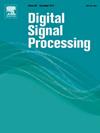IDSGA: A high-performance search model for differential-neural cryptanalysis
IF 2.9
3区 工程技术
Q2 ENGINEERING, ELECTRICAL & ELECTRONIC
引用次数: 0
Abstract
Differential-neural cryptanalysis poses critical security threats to internet of things-embedded lightweight block ciphers, outperforming traditional methods but requiring efficient input difference identification. Current solutions are constrained by the opacity of neural networks and the prohibitive computational demands during search processes. Therefore, an input difference search model IDSGA is proposed in this paper. IDSGA model innovatively combines cryptographic theory with deep learning through two key processes. First, feature purification enhances differential characteristics by eliminating redundant patterns while preserving attack-relevant statistical properties through traditional differential probability integration. Second, multi-dimensional distribution mapping enables quantitative dataset evaluation by transforming purified data into interpretable statistical metrics. It enables our model to break through the reliance on neural network evaluation. Moreover, IDSGA model constructs a more optimal search path by integrating a genetic algorithm to deal with the problem of differential search of full inputs with high computational complexity. A quantum variant theoretically extends these capabilities. The experimental results show that the execution time of the IDSGA model is 93% less than that of Gohr. For the CARX cipher, the input differences found by IDSGA are more optimal. This work establishes a new paradigm for differential-neural cryptanalysis by decoupling dataset evaluation from neural network training dependencies.
差分神经密码分析的高性能搜索模型
差分神经网络密码分析对嵌入物联网的轻量级分组密码构成了严重的安全威胁,其性能优于传统方法,但需要高效的输入差分识别。目前的解决方案受到神经网络的不透明性和搜索过程中令人望而却步的计算需求的限制。为此,本文提出了一种输入差分搜索模型IDSGA。IDSGA模型通过两个关键过程创新地将密码学理论与深度学习相结合。首先,特征净化通过消除冗余模式来增强差分特征,同时通过传统的微分概率积分保留攻击相关的统计特性。其次,多维分布映射通过将纯化的数据转换为可解释的统计指标,实现了数据集的定量评估。它使我们的模型突破了对神经网络评估的依赖。此外,IDSGA模型通过整合遗传算法构建更优的搜索路径,以解决计算复杂度较高的全输入差分搜索问题。量子变体在理论上扩展了这些能力。实验结果表明,IDSGA模型的执行时间比Gohr模型缩短了93%。对于CARX密码,IDSGA找到的输入差是最优的。这项工作通过将数据集评估与神经网络训练依赖关系解耦,建立了差分神经密码分析的新范式。
本文章由计算机程序翻译,如有差异,请以英文原文为准。
求助全文
约1分钟内获得全文
求助全文
来源期刊

Digital Signal Processing
工程技术-工程:电子与电气
CiteScore
5.30
自引率
17.20%
发文量
435
审稿时长
66 days
期刊介绍:
Digital Signal Processing: A Review Journal is one of the oldest and most established journals in the field of signal processing yet it aims to be the most innovative. The Journal invites top quality research articles at the frontiers of research in all aspects of signal processing. Our objective is to provide a platform for the publication of ground-breaking research in signal processing with both academic and industrial appeal.
The journal has a special emphasis on statistical signal processing methodology such as Bayesian signal processing, and encourages articles on emerging applications of signal processing such as:
• big data• machine learning• internet of things• information security• systems biology and computational biology,• financial time series analysis,• autonomous vehicles,• quantum computing,• neuromorphic engineering,• human-computer interaction and intelligent user interfaces,• environmental signal processing,• geophysical signal processing including seismic signal processing,• chemioinformatics and bioinformatics,• audio, visual and performance arts,• disaster management and prevention,• renewable energy,
 求助内容:
求助内容: 应助结果提醒方式:
应助结果提醒方式:


